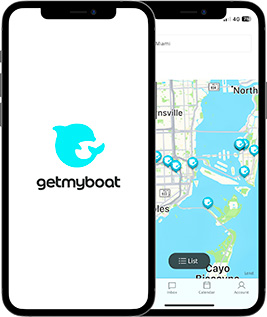Lake Michigan, one of the five Great Lakes in North America, boasts the third-largest volume among the Great Lakes. Its shores are adorned with numerous boat launches and marinas, establishing Lake Michigan as a paradise for boating enthusiasts. The lake offers an abundance of boat rentals and charters, providing an exceptional way to immerse yourself in its breathtaking landscapes, crystal-clear waters, and diverse wildlife. Oversight of boating activities on Lake Michigan falls under the jurisdiction of the Michigan Department of Natural Resources (DNR) and the US Coast Guard (USCG), ensuring compliance with all applicable laws and regulations.
All operators associated with Getmyboat are required to operate in accordance with local guidelines, guaranteeing full compliance with legal prerequisites. This includes obtaining proper registrations, passes, permits, and meeting the necessary criteria for both vessels and captains. Operators must also comply with the proper use of docks and designated boating areas for commercial activities, as outlined by local laws and facility regulations.
To help Getmyboat operators comply with all applicable regulations, here is a comprehensive 2025 guide for boating on Lake Michigan:
Boater Education Certificate
- To operate a motorized vessel in Michigan, individuals born after July 1, 1996, must successfully complete a state-approved boater safety course.
- Those born after December 31, 1978, must complete a personal watercraft (PWC) safety course to operate a PWC.
- Proof of completion, in the form of a boater education certificate, must be carried while operating a vessel.
Insurance
Comprehensive insurance coverage is essential for safeguarding your business, protecting valuable assets, and ensuring compliance with industry regulations. Trusted partners like Boat Charter Insurance can help tailor coverage to your specific needs.
Watercraft Registration and Titling
- All boats must be registered with the Michigan Department of State and display a valid registration decal.
- Watercraft 16 feet or shorter, powered by oars or paddles and not used for rental or commercial purposes, are exempt.
- Titles are required for vessels over 20 feet or those with a permanently affixed engine. Optional titling is available for other vessels to include lien-holders.
USCG Captain’s License
- Captains must hold a valid US Coast Guard license appropriate to the size and type of vessel.
- Vessels carrying up to six passengers require a 6-pack license, while vessels with more than six passengers require a Master Captain’s license.
- Licenses must be renewed every five years, including a physical exam and drug test.
- Sea service requirements must be met, and “near coastal” endorsements are limited to 100 miles on Great Lakes waters.
Certificate of Inspection (COI)
- Commercial passenger boats on Lake Michigan must possess a valid COI from the USCG.
- The COI ensures compliance with safety regulations, proper staffing, and the presence of essential equipment, including fire extinguishers and life jackets.
Recreation Passport
- The Michigan Recreation Passport is a yearly permit granting access to state parks, recreation areas, campgrounds, designated boating access sites, and trailheads.
- Daily parking is included, and passports can be purchased at any DNR Service Center.
Boat Launch Permit
- To launch at any state-managed public launch, a Lake Michigan Seasonal and Commercial Boat Launch Permit is required.
- Additional information is available through the township where you plan to operate.
Commercial Use Permit
- Vessels engaged in commercial activities, including charters or fishing, must hold a Commercial Use Permit from the Michigan DNR.
2025 Updates & Safety Regulations
1. Marina & Access Site Changes
- Some launches, like Menominee Railroad Dock, are temporarily closed for construction through late 2025.
- The Michigan DNR Boating Facility Finder tool provides real-time information on launch availability, closures, and marina slips.
2. Life Jackets & PFDs
- USCG-approved life jackets are required for all passengers.
- Inflatable PFDs are not permitted for PWCs; Type I, II, or III vests must be used.
3. Personal Watercraft Rules
- Minimum age: 14 years, with supervision for ages 14–15.
- PWCs cannot operate from sunset to 8 a.m. and must remain 150 feet from swimmers or other boats.
4. Boating Under the Influence Enforcement
- Michigan participates in Operation Dry Water, intensifying patrols during holidays and peak seasons.
- Penalties for violations, such as operating without proper licensing or COI, can reach up to $50,000.
5. Wake & Speed Regulations
- Slow‑no-wake speed is required within 100 feet of docks, swimmers, and moored boats.
- Proposed legislation may increase minimum distances for wake-sport vessels from shore and docks.
6. Fishing & Angling Updates
- 2025 regulations update steelhead, muskie, and other species size/bag limits.
- Fishing from a boat requires a valid Michigan fishing license, except on free fishing weekends.
7. Safety Gear & Navigation
- All vessels must carry fire extinguishers, first aid kits, navigation lights, and sound-producing devices appropriate to vessel size.
- Lighting rules vary based on vessel length and type.
8. Penalties & Enforcement
- Noncompliance fines: $9,000–$50,000 depending on severity.
- Charter and livery operators must maintain trip logbooks and complete DNR-approved training.
9. Additional Resources
- Stay informed with USCG Boating Safety Circulars and the Michigan DNR website.
- Monitor updates from the National Recreational Boating Safety Program (2025) for federal guidance.
Following these guidelines ensures that recreational boaters and commercial operators enjoy a safe, legal, and unforgettable experience on Lake Michigan, whether exploring its scenic coastline, wildlife, or crystal-clear waters.















